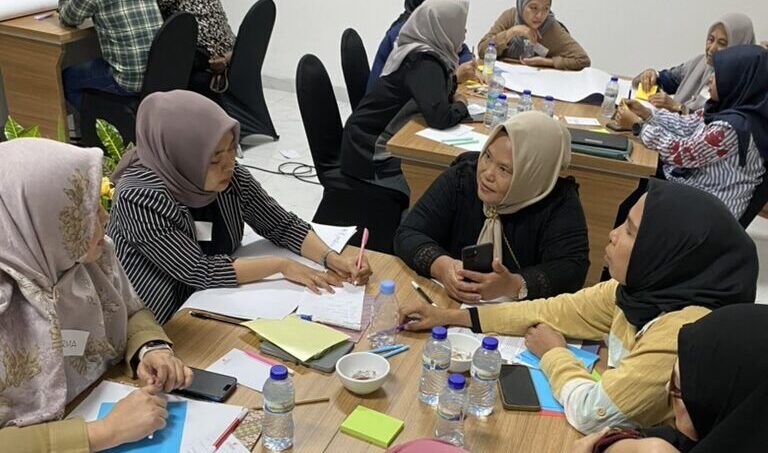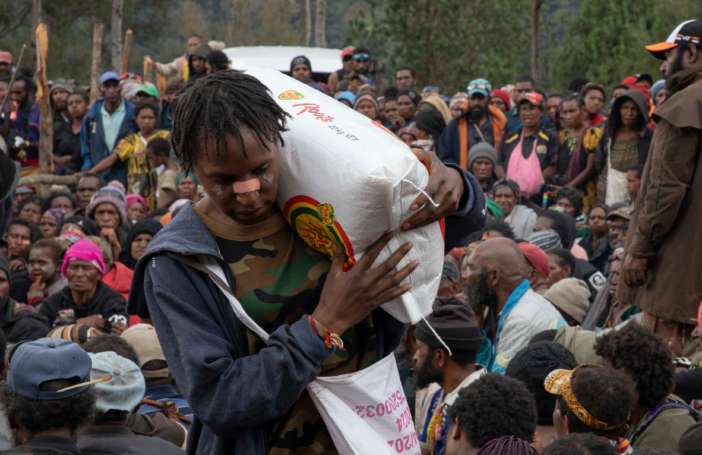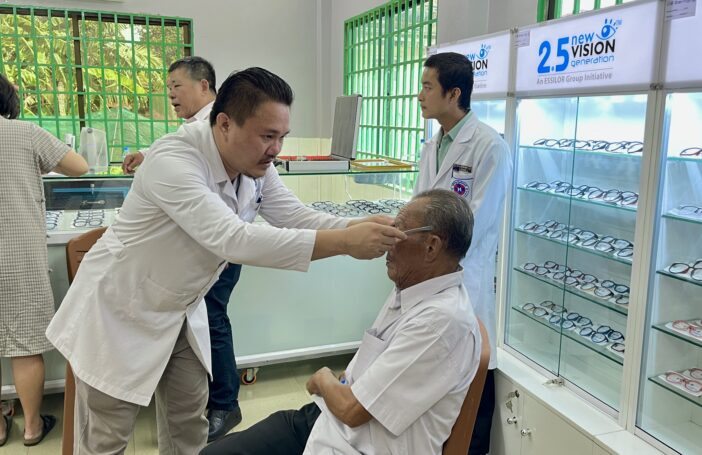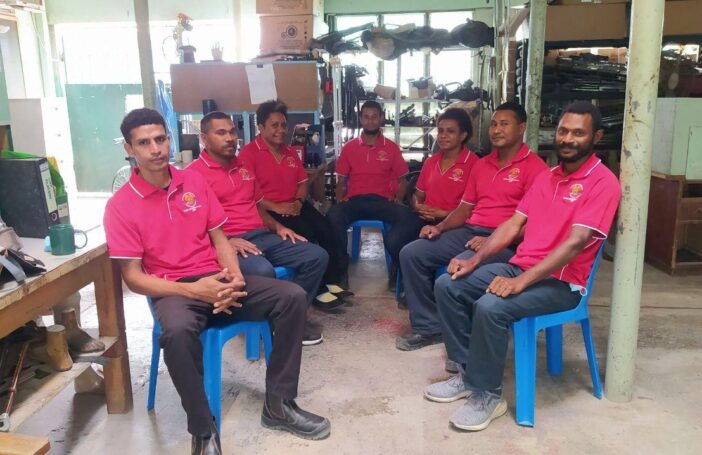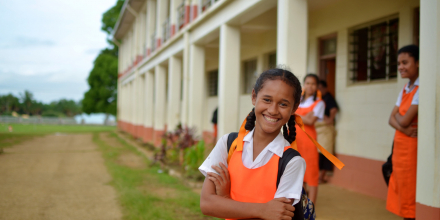During the dry season in the city of Makassar in the Indonesian province of South Sulawesi, the state-owned power company PLN rations hydroelectric power due to low water levels. As a result, households, universities, businesses and government offices lack access to continuous electricity.
Many students with disabilities, including Ilham, a blind student, have reported that power shortages affect their studies and other activities, as they rely on assistive technology. Abdullah, who is deaf, helps his parents on their plantation in Tanah Toa, located in the Kajang District of Bulukumba province. He has observed that the production of rice, nutmeg, cloves, fruit and vegetables has become irregular, leading to an unstable family income which is affecting their ability to sustain their livelihood.
Further south in East Sumba, a household with five children, including two who are deaf and one who is blind and hard of hearing, was displaced by a flood. They stayed with the village head for over three weeks, unaware that their house had been destroyed. It was only when a relative visited them that they learned what had happened.
Research by the Australia-Indonesia Disability Research and Advocacy Network (AIDRAN) explored how people with disability are affected by climate change and the extent to which their voices and experiences are considered in shaping climate change responses. Conducted in three regions of Indonesia — Bulukumba, South Sulawesi, East Sumba and East Java — the 12-month study, in partnership with Thomas More Law School at the Australian Catholic University and the Faculty of Law at Brawijaya University in Malang, gathered first-hand accounts from people with disability about their experiences with climate change.
In East Java, poor weather conditions were identified as affecting people with disability in different ways. A representative from an association for the deaf highlighted that television signals are frequently disrupted during bad weather, preventing the reception of important information delivered via sign language. Further, high rainfall imposes physical challenges on individuals with mobility restrictions. One participant explained that his all-terrain vehicle often becomes bogged down or is unable to traverse roads due to the impacts of extreme weather events.
These accounts emerged not from asking, “how is your life being affected by climate change?” but from inquiring about recent events that have affected their livelihoods. This approach was taken because we learned that perubahan iklim, or “climate change” in Indonesian language, is a term that may be foreign for many of our participants.
Understanding the experiences of people with disability with climate change is crucial in developing targeted policies and actions to protect and support them in the face of its impacts. Though 15% of the world’s population lives with at least one disability, people with disability globally are disproportionately affected by climate change. Discriminatory policies that marginalise people with disability undermine their rights, including to access information about climate change and be protected from its effects. Such marginalisation and discrimination also excludes their voices and experiences from being considered in climate change mitigation and adaptation responses.
In 2019, the United Nation Human Rights Council adopted a resolution addressing the impact of climate change. It urged states to develop responses to climate-related harms, emphasising the importance of considering the varied effects on individuals, including women and people with disability, and adapting measures to meet their specific needs.
Indonesia’s Disability Law, No. 8/2016 on Persons with Disability, guarantees people with disability protection from disasters. It ensures their right to accessible information, risk management knowledge, priority treatment during evacuation and emergency response, safe evacuation procedures, and priority in shelter (Article 5). This aligns with the Sendai Framework for Disaster Risk Reduction 2015-2030, which encourages partnerships between Disabled People’s Organisation (DPOs), governments and non-government organisations, and other disaster risk reduction actors.
Speaking at a consultation meeting on 2 May 2024 as part of our research, Harry Kurniawan, Commissioner of Indonesia’s National Commission of Human Rights, highlighted the dangers of “eco-ableism”. He explained that discriminatory policies and practices towards people with disabilities not only threaten their safety and wellbeing but also risk further marginalising them. He called on both local and national governments, as well as civil society organisations, to work with DPOs to ensure the experiences of people with disability are included in climate change responses.
Our fieldwork shows that people with disability in Indonesia remain excluded from climate change policies, including adaptation and mitigation efforts. No adequate policies exist at any level of government, from local to national, that guarantee their right to information about climate change. Already marginalised by discrimination in education, health services and employment — resulting in high rates of poverty — this group faces additional barriers. Authorities must intensify their efforts to provide both long-term climate change strategies and immediate assistance during natural disasters, ensuring they are fully informed and protected.
In undertaking this effort, it is hoped that all levels of government will recognise the limitations and shortcomings in their policies and plans. Our findings show that a lack of awareness regarding the rights of people with disabilities has led to the creation of discriminatory policies. Actively engaging with and listening to people with disability is the key to bridging the gap in awareness, protecting their rights and preventing further disadvantage.

